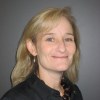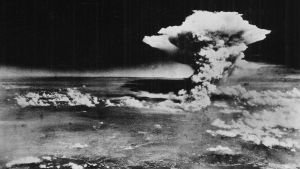The Dawn of the Nuclear Age - 75 Years After Hiroshima
To mark the 75th anniversary of the United States dropping atomic bombs on Hiroshima and Nagasaki, experts reflect on the importance of reporting the truth and the prospect of a future free of nuclear weapons.
About This Event
Seventy-five years have passed since the United States dropped atomic bombs on the Japanese cities of Hiroshima and Nagasaki in the waning days of World War II. These cities stand as a powerful symbol of nuclear destruction and have shaped how we think about war, peace, power, and ethics. While the bombings of Hiroshima and Nagasaki mark the last time nuclear weapons were used in combat, has reporting on the devastating impact succeeded in curbing the spread of nuclear weapons? To mark the 75th anniversary, the Council reflects on this historic event, the importance of reporting the truth to the world, and the prospect of a future free of nuclear weapons.
About the Speakers
Lesley M. M. Blume
Lesley M. M. Blume, Journalist
President and CEO, Bulletin of the Atomic Scientists

Rachel Bronson is the president and CEO of the Bulletin of the Atomic Scientists. She oversees the publishing programs, management of the Doomsday Clock, and a growing set of activities around nuclear risk, climate change, and disruptive technologies. Before joining the Bulletin, Bronson served as the vice president of studies at the Chicago Council on Global Affairs.

Emma Belcher
President, Ploughshares Fund
Emma Belcher is the president of the Ploughshares Fund, a public grantmaking foundation that supports initiatives to prevent the spread and use of nuclear weapons. Before this position, she was the director of Nuclear Challenges at the John D. and Catherine T. MacArthur Foundation, and published research on nuclear weapons at the Council on Foreign Relations as a Stanton Nuclear Security Fellow.
